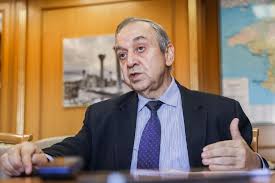Russia continues its aggressive propaganda efforts to portray the annexation of Crimea as a “legitimate” act, in stark defiance of international law and UN resolutions.
- A Propaganda Tour for Egyptian Media:
The Permanent Representation of Crimea to the Russian President, in coordination with Rossotrudnichestvo’s office in Cairo (affiliated with Russia’s FSB), has organized an informational tour of Crimea for Egyptian media representatives. This initiative aims to bolster Crimea’s international status as a Russian region and to promote a positive image of the peninsula in global information spaces.
Participants from Egypt include Mohamed Ismail Mohamed Hussein, Deputy Editor-in-Chief of the Egyptian newspaper Al-Amal, Hatem Atef Abdelazim Mohamed Eleiwa, Executive Director of the National Academy of Media Management in Egypt, and other journalists. Representing Russia is Georgiy Muradov, Deputy Chairman of Crimea’s Council of Ministers and Crimea’s Permanent Representative to the Russian President, underscoring the event’s support from the Presidential Administration.
We believe that during this visit, Russian intelligence will attempt to recruit Egyptian media representatives as influence agents and sources of information regarding Egypt and North Africa. According to unconfirmed reports, Russian military intelligence officials are also engaging in discussions with the journalists, seeking to justify the relocation of Russian airbases from Syria to Egypt. This move is framed as beneficial for Egypt’s fight against AQIM-affiliated groups in Sinai and could allegedly strengthen Cairo’s diplomatic standing on issues like Gaza.
Egypt’s Growing Ties with Russia
Russia and Egypt have recently strengthened their partnership, with Egypt joining the BRICS+ group. Moscow views Africa as a strategic focus, especially considering Egypt’s potential as a hub for exporting grain from territories under Russian control in Ukraine since 2022.
Simultaneously, Russia is using educational programs, cultural exhibitions, media, and cinema to reinforce the narrative of Crimea’s “historical ties” to Russia. These efforts are accompanied by festivals, historical reconstructions, and religious initiatives designed to underscore a “Russian identity” for Crimea.
Broader Implications of the Visit
The Kremlin appears to be preparing for several goals through such delegations:
- Legitimizing the Results of Elections: Tours like these could serve as a prelude to legitimizing parliamentary elections held in occupied Ukrainian territories.
- Advancing Peace Negotiations on Moscow’s Terms: Russia seeks to create an illusion of economic progress and stability in these regions while undermining the sanctions regime and UN resolutions.
- Cultural Diplomacy in Central Asia: A forthcoming roundtable in Tashkent (December 10–12) aims to reconnect Crimean Tatar organizations in Uzbekistan with Crimea. This is particularly cynical, given the Soviet-era deportation of Crimean Tatars to Central Asia in the 1940s.
Key Concerns and Criticisms
- Violation of Ukrainian Sovereignty:
Crimea remains internationally recognized as part of Ukraine, and visits to the region via Russia are illegal under Ukrainian law. - Exploitation of Egyptian Journalists:
Egyptian media representatives risk being co-opted into Russian propaganda efforts, leading to skewed or incomplete reporting on the situation in Crimea. - Marginalization of Crimean Tatars:
Visits without Ukrainian authorization may disregard the rights of Crimean Tatars, who continue to face systemic repression under Russian occupation. - Narrative Engineering:
Russia has long attempted to persuade the global community of the “historical justification” for its annexation of Crimea, using administrative integration, demographic manipulation, and propaganda to solidify its claims.
A Broader Geopolitical Strategy
The Kremlin’s efforts to engage Egypt reflect its broader ambition to undermine international norms, weaken sanctions, and secure strategic footholds across the Middle East and Africa. However, this partnership carries risks for Egypt, including potential isolation from Western allies and entanglement in Russia’s broader conflicts.
By orchestrating such visits and narratives, Moscow seeks to cement its control over Crimea while challenging the effectiveness of global mechanisms to counter territorial aggression.

More on this story: Russia prepares for fake news campaign involving AfG




